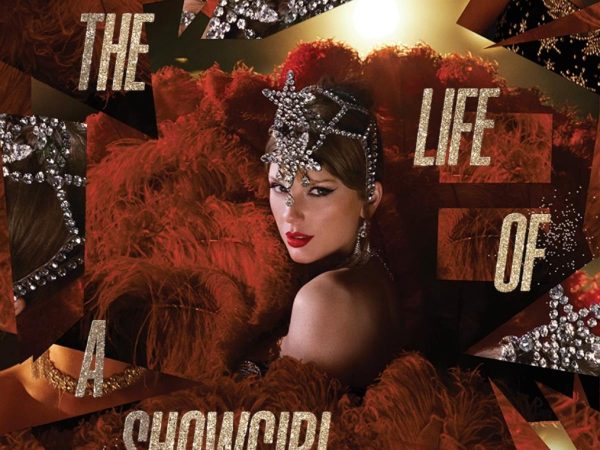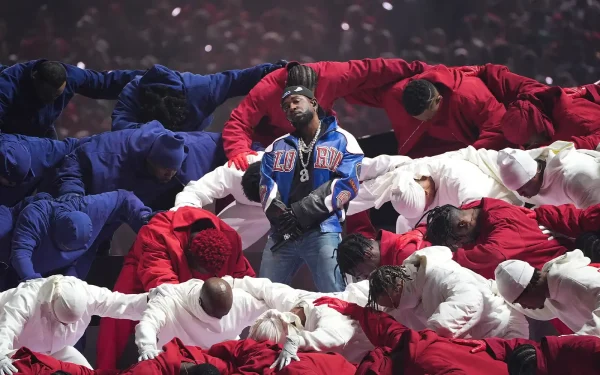The 92nd Academy Awards: an exercise in disorganization
The 92nd Academy Awards were hosted on February 9th at the Dolby Theatre, boasting a plethora of the year’s most celebrated films ranging from Parasite, directed by Bong Joon Ho to Little Women, directed by Greta Gerwig. The night was filled with heartwarming speeches but also odd, forced moments that reminded audiences of the antiquity of the event as well as the growing incompetence of the show’s production team.
Parasite, was crowned as Hollywood’s sweetheart that evening, winning a total of four Oscars including the esteemed Best Picture after facing off with pop culture successes such as Little Women and Marriage Story. The South Korean film made history for being the first-ever non-English movie to win in this category as well as being the first South Korean film ever to be nominated for Best International Feature Film.
The film’s sweep through the awards show was met with great celebration as evidenced by the crowd’s demands that the lights be kept on for the cast to continue their acceptance speeches. However, aside from the general merriment surrounding the film’s success, little else was up to par at this year’s Oscars.
Some have criticized this year’s show for its lack of inclusion of women or people of color in its nominees. No women were added to the list of female nominees for Best Director, of which there are only five. Additionally, only one black acting nominee was featured, Cynthia Erivo, for her role of Harriet Tubman in the breakout film, Harriet.
Marginalized groups found victory in less popular categories such as Best Animated Short Film, won by Hair Love, produced by Matthew A Cherry and Karen Rupert Toliver, and Best Documentary Feature, won by American Factory, directed by Steven Bognar and Julia Reichert. However, the delegation of people of color and women to these “lower rank” categories is no compliment to the abilities of the many talented nonwhite, women directors, and actors of Hollywood.
Thinly veiled attempts to correct the misrepresentation of the non-white, female population in the multi-language rendition of “Into The Unknown” were mediocre. The performance’s theme of a larger, global connection through the arts simply raised the question: why hadn’t the Academy simply honored that theme by nominating more people of color or international films in the first place?
In addition, the Academy’s seemingly arbitrary decision to showcase Eminem’s performance of “Lose Yourself” is perhaps the moment that best highlights the show’s loss of touch with popular media. The generally confused reaction, including Martin Scorsese’s decision to sleep during the song, demonstrates the disconnect between the audience and production team.
“I didn’t understand why they asked him to perform. He had no real ties to any of this year’s nominees…It just seemed strange,” comments Pascack Hills junior, Kate Kavashansky.
Moreover, the poor and infuriatingly useless cache of “hosts” leaves something to be desired. The absence of one singular host for the night may have been found a refreshing change of pace for some die-hard award show viewers, but others were left puzzled on the excessive use of big names in the show’s revolving cast of presenters.
An anonymous Hills student reports, “It seemed like a waste of time to bring on Beanie Feldstein just so she could introduce Mindy Kaling; why [did] they bring her on at all?”
Perhaps this year’s show’s list of flaws points to the astounding dip in ratings it suffered; a whopping 20 percent less than the previous year. If the Academy wants to fix its viewership problems, it needs to address the complaints that are coming hot from audiences’ mouths. A higher number of nominations for women and people of color are an obvious necessity, as well as a more efficient show that can effectively offer viewers a desirable, comprehensive performance.
In all, the execution of the Oscars needs to change with the changing demands of what an awards show should be, not just a blind grab at viewership points through a hodgepodge of pop culture highlights.

Claudia Kim is a senior at Hills and is excited to be working on the Trailblazer as an editor this year. Claudia edits for the Opinion section, a part of the paper that gives Hills students a place to be heard.
Fun Fact: Kim's favorite book is The Idiot by Elif Batuman.













































